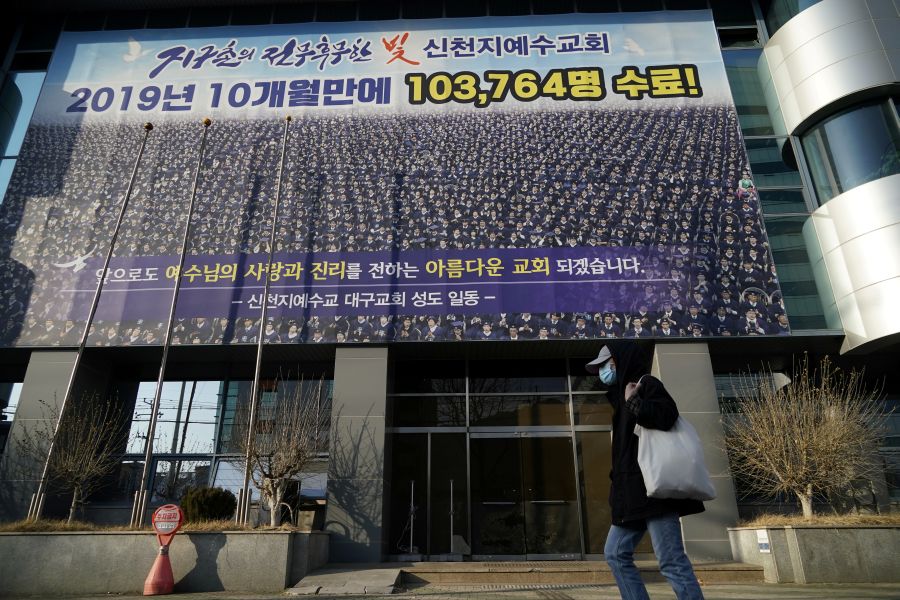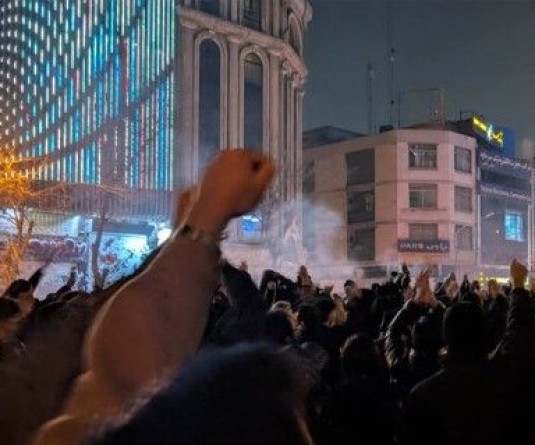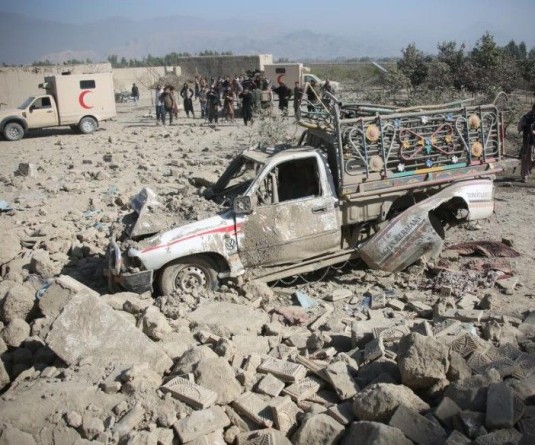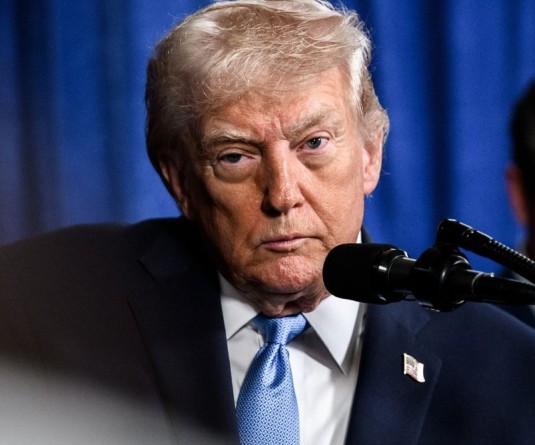South Korea coronavirus cases more than double, Samsung factory shutdown

A man wearing a mask to prevent contracting the coronavirus walks past a branch of the Shincheonji Church of Jesus the Temple of the Tabernacle of the Testimony in Daegu, South Korea on February 21. (REUTERS Photo)
SEOUL, February 22 (Reuters): South Korea said on Saturday that the number of new coronavirus cases in the country had doubled to 433, and officials suggested that the tally could rise significantly as more than 1,000 people who attended a church at the centre of the outbreak reported flu-like symptoms.
Korea's Centers for Disease Control and Prevention (KCDC) reported 142 new cases at a morning briefing and another 87 in the afternoon. KCDC also reported another death from the virus, bringing the total to three.
Of the new cases, most have been linked to outbreaks at a branch of the Shincheonji Church of Jesus in the southeastern city of Daegu and a hospital in Cheongdo county.
Samsung Electronics on Saturday said one of the virus cases had been confirmed at its mobile device factory complex in Gumi, causing a shutdown of the facility there until Monday morning. Gumi is close to Daegu.
Samsung's factory in Gumi accounts for a small portion of its total smartphone production, as the world's top smartphone maker produces most of its products in Vietnam and India.
Also among the new cases were the first reported infections in Busan, South Korea's second-largest city, and on the Island of Jeju, a popular tourist destination.
The government designated both Daegu, which has a population of 2.5 million people, and Cheongdo county, home to around 43,000 people, as "special care zones" on Friday. Officials sent military medical staff and other health workers, and extra resources, including hospital beds.
More than half of the national cases are linked to a 61-year-old woman known as "Patient 31" who attended religious services at a branch of the Shincheonji Church of Jesus in Daegu, the Temple of the Tabernacle of the Testimony. The woman had no recent record of overseas travel, authorities said.
KCDC said on Saturday they had obtained a list of 9,300 people who had attended church services, around 1,200 of whom had complained of flu-like symptoms.
The church and Cheongdo hospital outbreaks may also be linked, as several church members attended a funeral at the hospital for the brother of the founder of the church this month. President Moon Jae-in has called for officials to investigate potential links.
Cases from the hospital surged near a hundred overnight, with all but two of the new infections from the hospital's psychiatric unit.
"We think the patients had repeated exposure given the isolated facility of the psychiatric wards, where many patients share the same room," KCDC Director Jeong Eun-kyeong told reporters.
The hospital, which has around 600 patients and staff, has been closed and patients are being transferred to other facilities.
RALLIES GO AHEAD
Three people have died in South Korea in the current outbreak; a 41-year-old man was found dead in his home on Saturday and the health authorities confirmed he was tested positive, a woman in her fifties who was moved from the Cheongdo hospital to Busan for treatment and a 63-year-old man, who also died at the same hospital.
Among the new cases confirmed on Saturday, two were in Busan, while one was on Jeju, a soldier stationed on the island who had come into contact with residents in the Daegu area. The government had banned all military personnel at a Daegu base from leaving the barracks.
In the capital Seoul, thousands of people took to the streets on Saturday for regular weekend political rallies, despite the city's mayor on Friday saying the gatherings would be banned as part of containment measures.
Seoul police told Reuters they were aware of the ban but could only intervene if the city administration sued an individual or groups.
PILGRIMAGE TO ISRAEL
Among the new confirmed cases were nine of the 39 South Koreans who had gone on a pilgrimage to Israel earlier this month, North Gyeongsang Province governor Lee Cheol-woo told a briefing on Saturday.
Israel's health ministry said in a statement it had been informed by South Korea that the nine tourists who had toured across Israel earlier in the month had since tested positive for coronavirus.
The ministry was trying to track down locals who may have come into contact with the group, and posted the tourists' travel itinerary, which included a number of popular holy sites.
Anyone who was in close contact with the group was asked to report it to the ministry and stay at home for 14 days while their health is monitored.
The coronavirus originated in China before spreading to some 26 countries and territories outside mainland China.
The death toll from the outbreak in mainland China rose to 2,345 as of Friday with over 76,000 people infected.






